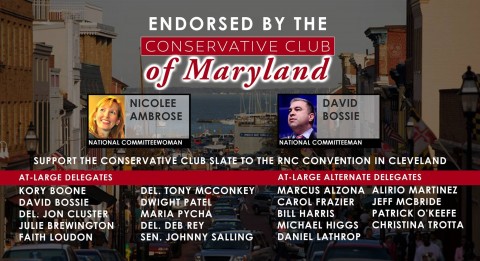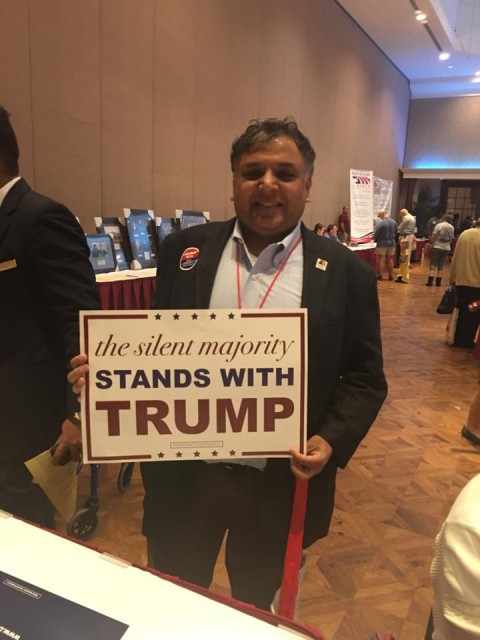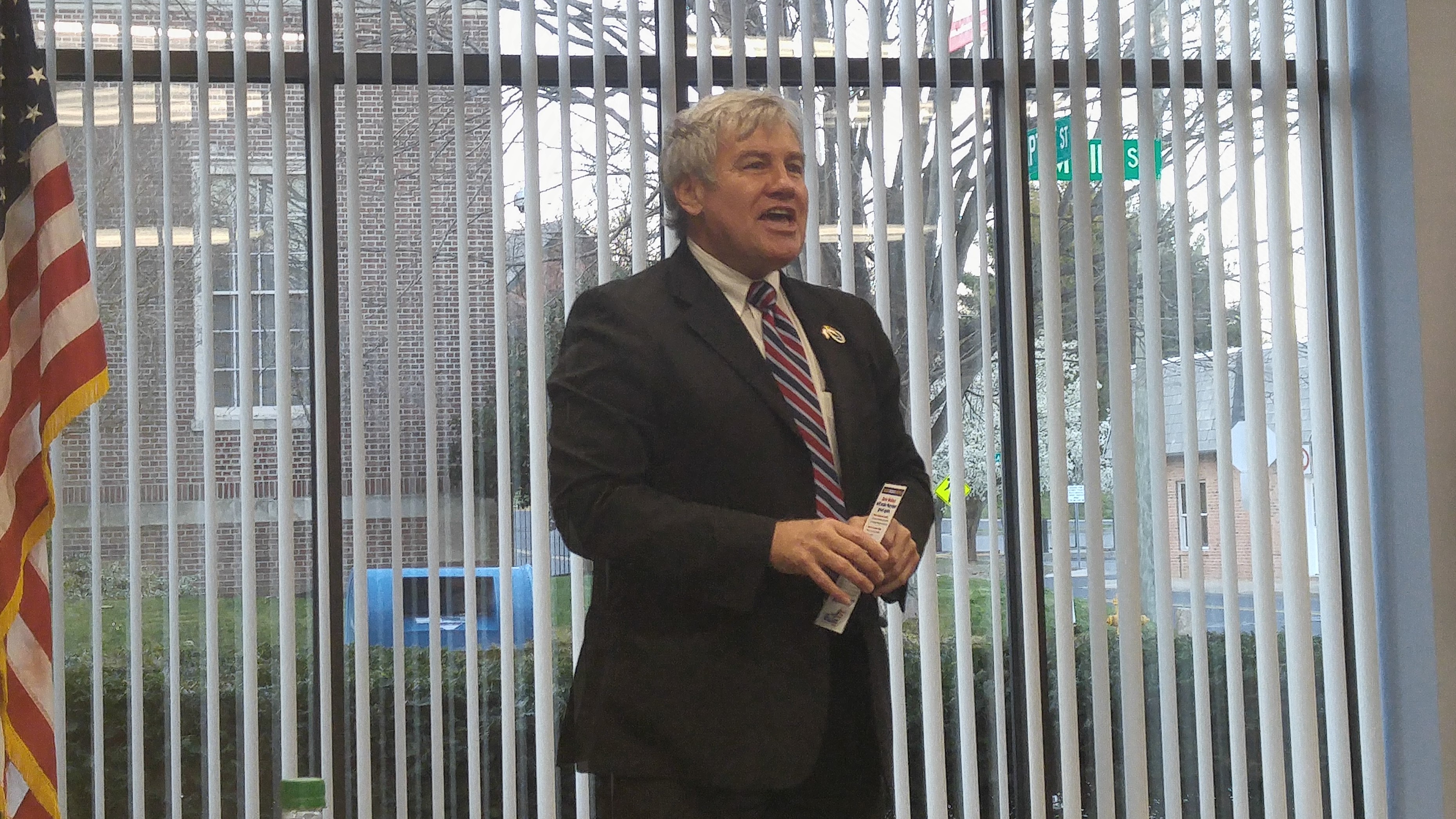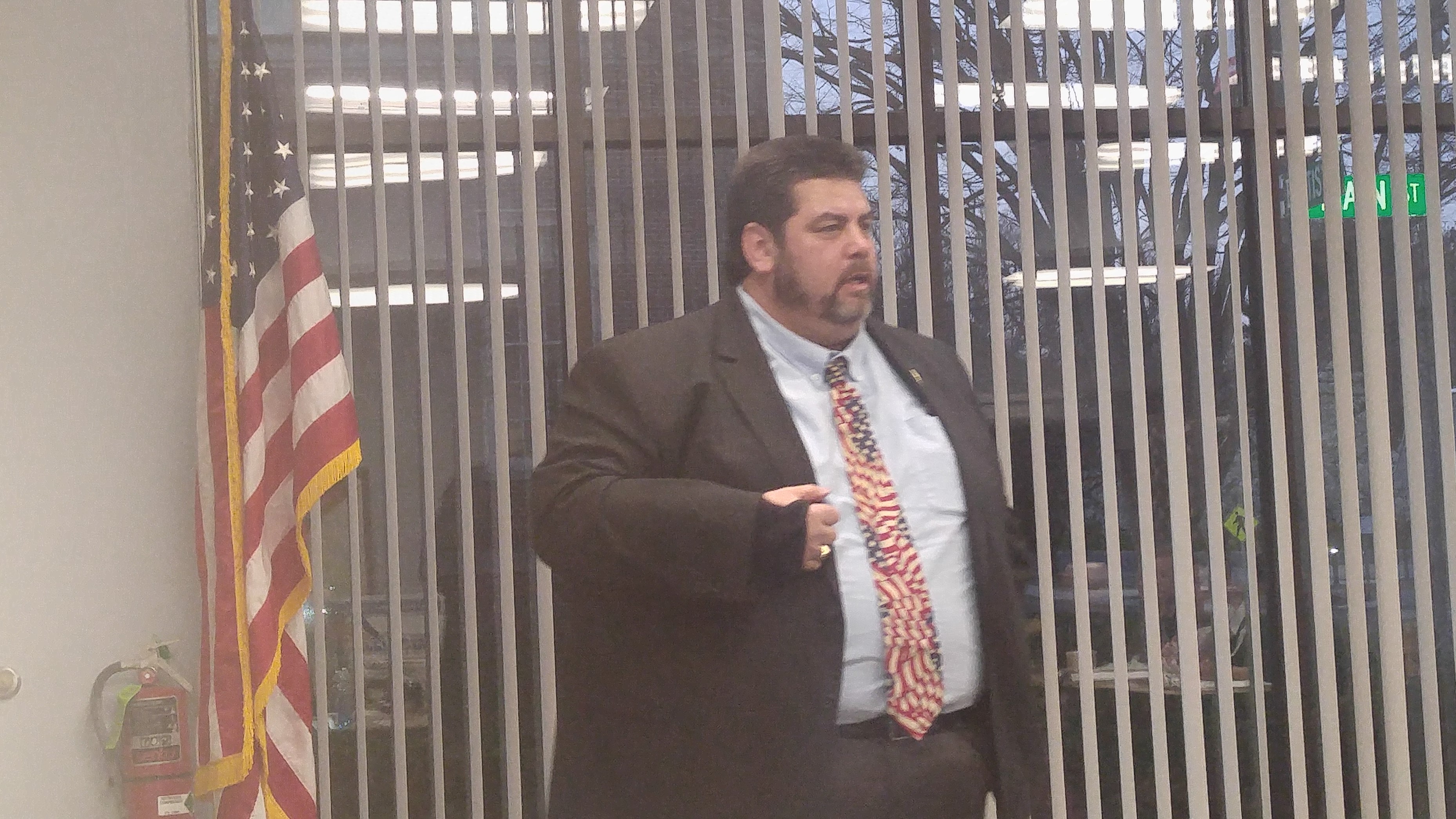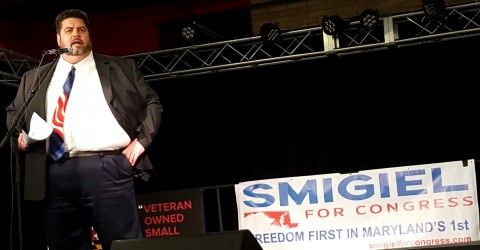This is the first of a few overview posts I plan on writing for local Maryland and Delaware races of importance. The reason I selected this race first is that there are only three candidates in the running – no write-in candidates have entered this race. Makes for an easy start.
So without further ado, here are the three men running for this office, listed in alphabetical order. Information is gleaned in large part from the respective websites.
Matt Beers (Libertarian Party)
Key facts: Beers is from Cecil County, making him the closest to a native Eastern Shoreman in the race. He is 26 years old, a Navy veteran and current reservist, and works for Cecil County Public Schools. This is his first run for federal office, and his run marks the return of the Libertarians to the District 1 ballot after none ran in 2014. (Current Salisbury City Council Vice-President Muir Boda was the last Libertarian to run for the seat in 2012.)
Key issues: Economy, National Security, National Debt, Taxes, Two-Party System
Thoughts: Matt seems to be running a very orthodox Libertarian campaign with regard to smaller government and a relatively isolationist foreign policy. He seems to be staying away from the social issues, which is probably a good idea in a conservative district if he remains on that part of the Libertarian line that favors a more liberal view on abortion, same-sex marriage, marijuana legalization, and so forth.
It would be interesting to see what Michael Smigiel has to say about Matt’s campaign since they seemed to have relatively similar philosophies. (Beers was a guest on Mike’s internet radio show back in July so I guess I can find out.) And while Smigiel only received 10.7% of the vote in the GOP primary, if all those votes transferred over to Beers it would get him most of the way to the vote total Boda received in 2012. It likely won’t affect the result, but getting 5% of the vote isn’t out of the question for Matt.
Andy Harris (Republican Party, incumbent)
Key facts: Harris is seeking his fourth term in Congress, where he has designs of becoming the leader of the Republican Study Committee. He also serves on the House Appropriations Committee. Harris is 59 years old and served as a State Senator for 12 years in the Baltimore area before winning the seat in 2010. After losing in his first Congressional bid in 2008 to Democrat Frank Kratovil by less than 3,000 votes, he avenged that defeat with a 12-point win in the 2010 midterms. Harris is an anesthesiologist by trade and served in the Navy Medical Corps.
Andy was perhaps the most prominent elected official to endorse Ben Carson in the GOP primary; after Carson withdrew Harris eventually followed him in backing nominee Donald Trump.
Key issues: Health Care, Economy and Jobs, Energy, Debt and Government Spending, Taxes, Education, Immigration, Social Security, Medicare, Financial Security
Thoughts: While it’s not too difficult to be the most conservative member of the Maryland delegation when you are the lone Republican, Andy is among the top 10 percent in many of the conservative rating systems that are out there. But in reading his stance on issues, it seems to me he’s moved back a little bit into “tinker around the edges” territory on several, entitlements, energy, and education being among them. Perhaps that’s simply from knowing how the system operates and what we can realistically get, but I wouldn’t mind a little more leadership on actual rightsizing of government. Maybe getting the RSC gig will help in that regard, but it also may make him a little more “establishment” as well.
As evidenced by the primary results, there is a percentage of Republicans who aren’t happy with Andy. It won’t be enough to tip the race, but it could keep him in the 60s for his share of the vote.
Joe Werner (Democrat Party)
Key facts: Werner is an attorney who lives in Harford County but practices in Washington, D.C. After a lengthy political hiatus, Werner jumped into the 2016 Democratic primary and upset former Salisbury mayor Jim Ireton for the nomination. In two previous runs for federal office, Werner finished 17th of 18 candidates running for the Democratic nomination to the U.S. Senate in 2006 (behind winner Ben Cardin) and was fourth of four who sought the 2008 District 1 bid that Frank Kratovil received. Werner is 56 years old, and has spent much of his legal career concentrating on the areas of family and children.
Key issues: Taxes, Halting Corruption, Trade Policies, National Safety
Thoughts: Werner exhibits a mixed bag of philosophies, with moderately conservative lip service to term limits, gun rights, the military, and certain areas of taxation contrasted by the usual progressive screeds about campaign finance reform, the $15 minimum wage, adoption of a value-added tax (“a tax most other nations have”), and the effects of free trade. And while none of these candidates have a website that will knock your socks off, Werner’s reads like it was written by someone with no understanding of the political system or even the office he is running for. (My guess is that the copy was written overseas.) The small percentage of leftists in the district will back him, but it’s a much less interesting race than it would have been with Ireton involved.
Personally, I’m leaning toward Andy but would be interested in knowing a little more about where the Libertarian Beers stands on other issues. Now that I’m off the Central Committee I can admit I voted for my friend Muir Boda in 2012 and maybe – just maybe – I may go Libertarian again. With the nature of the First District, it’s a similar free vote to that for President in Maryland. Honestly I’ll be curious to see whether Harris outpolls Donald Trump or not in this district.
So until I do a little more vetting of Matt Beers, I will withhold an endorsement in this race.


